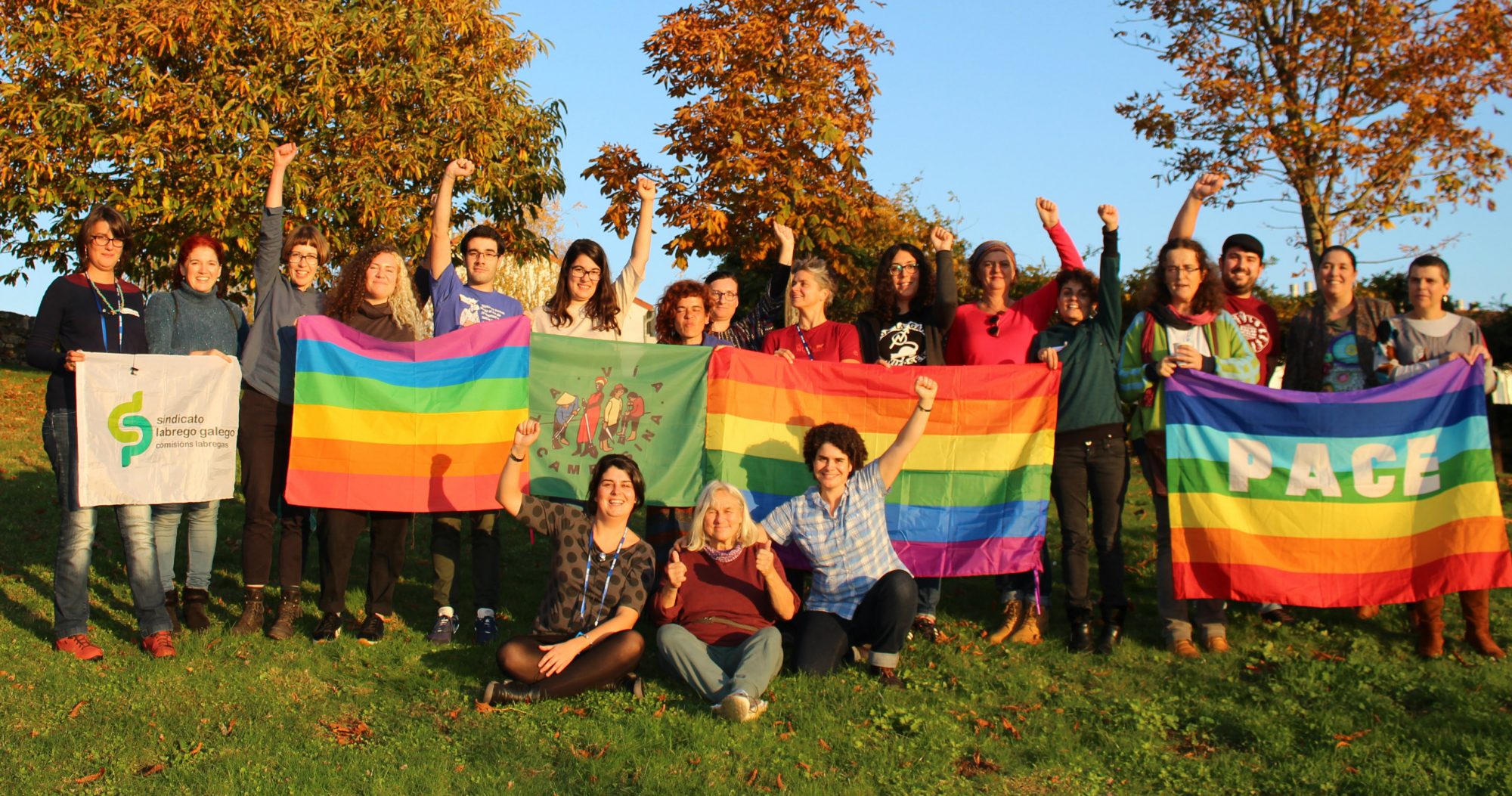“Often our agendas of demands and struggles target the outside world, thanks to which, we achieve important reforms and victories for society. But many times we also forget to look inwards: inside of our organisations and within individuals. And, in our view, it is fundamental to look at people as well, not as isolated and individualistic beings, as the capitalist system pretends, but as fundamental and essential pieces for the construction of our movement as a whole. From this perspective, we need to deal with issues such as affection, emotions or sexuality, so that, as the feminist and anti-patriarchal movement that we are, we can also include the complete diversity of the political subjects that form part of La Via Campesina.” Paula Gioia, a small scale farmer and bee-keepr from Germany, who is also the International Coordination Committee member of La Via Campesina was speaking at the First meeting ofLGBTIQ people in November 2018.
The European Coordination Via Campesina (ECVC) held its First LGBTIQ Meeting in Santiago de Compostela, between 15 and 17 November 2018. It was attended by representatives of various European agricultural organizations that are part of ECVC, from countries such as Euskal Herria, Andalusia, Germany, Austria, Norway, Belgium, and Great Britain, in addition to the host organisation: the Syndicate Labrego Galego (SLG), from Galicia.
One of the main objectives of this meeting was to create a space within the European Coordination Via Campesina for LGBTIQ members of the movement to dialogue and exchange from and of their common reality.
Ángel Amaro, an LGBTIQ activist from Galicia, also spoke about the creation of spaces to integrate and transversalize sexual and gender diversity in the agrarian organizations of ECVC, for whom “beyond the fact that we remain limited in the green, red or violet struggle; we need to find another type of methodology that integrates all of us.”
“In its 45 years of existance, the Sindicato Labrego Galego committed itself to diverse causes linked to the territory and the peasant profession: from the defense of the land in conflicts such as Encrobas, to the struggle for our dairy sector’s right to produce after Spain’s entry into the EEC. Many of these struggles were born from the aspiration of people to be able to live with dignity from peasant work in an environment that wouldn’t be hostile to them. Shortly afterwards, the women needed their own demanding agenda and, from there, the Women’s Secretariat of the SLG was born almost thirty years ago. Thanks to struggles of the feminists, we saw that the capitalist economic system was not the only one oppressing peasants, but that there were also other oppressive structures present, like heteropatriarchy. For this reason, the rights of women or LGBTIQ people are just as important to us as other struggles such as demanding decent prices because, in one way or another, with any of these causes, we are defending people’s lives and dignity.” Isabel Vilalba Seivane, secretary general of the Galician Farm Workers Union (SLG) added while addressing a press conference.
In addition to internal exchanges, there were three debates open to the public: “Neofascism and pink capitalism: How to dismantle pinkwashing?“with Daniela Ferrández (Transamizando) and Ángel Amaro (LGBTIQ activist); “Accords and discords between the LGBTIQ movement and the feminist movement“, with Ximena González (World March of Women); and “History of the LGBTIQ movement and future challenges for a transformative sexual diversity agenda“, with Laura Bugalho (LGBTIQ activist, transfeminist and in favor of migrants). The participation of all these activists enabled a rich exchange of ideas between ECVC and the LGBTIQ movement.
ALSO WATCH >> This short video produced during the meeting explains the importance of LGBTIQ struggles within the European peasant movements and rural areas.
This post is also available in Español.

